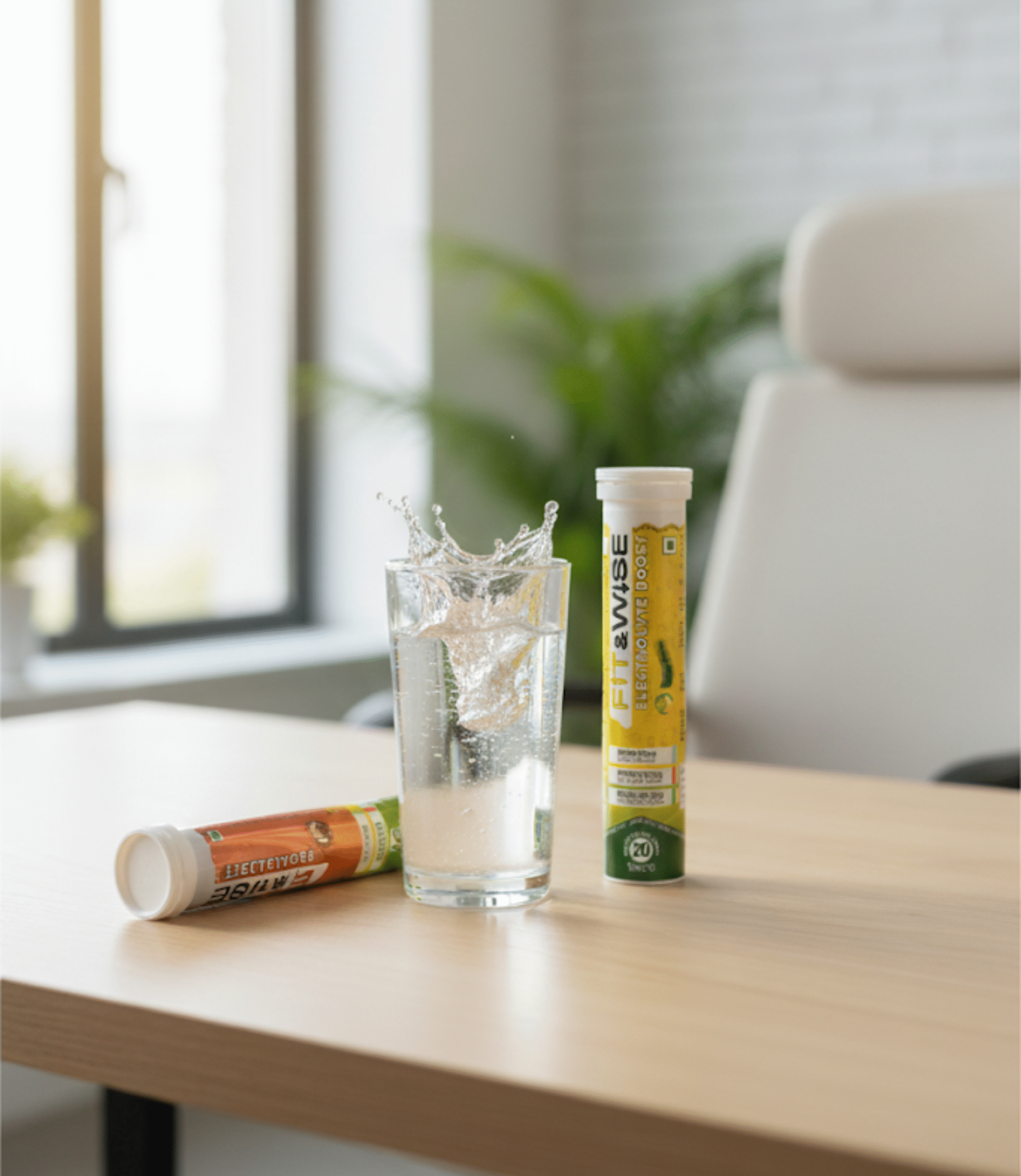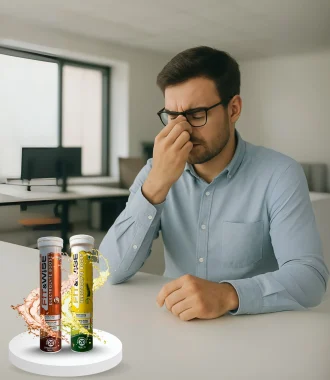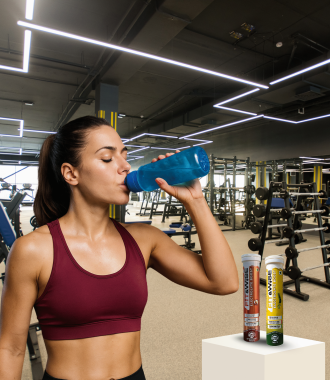Electrolytes are essential minerals like sodium, potassium, magnesium, and calcium that keep the body functioning smoothly. They regulate hydration, nerve signals, and muscle contractions, making them vital for overall health. Most people associate electrolyte loss with sweating during workouts or sports, but the truth is that anyone can become deficient without realizing it. Long desk hours, dehydration from daily routines, or even stress can drain electrolyte levels. Spotting the signs early can help you stay energized and healthy.
1. Constant Fatigue and Low Energy
If you often feel drained despite sleeping well, low electrolyte levels could be the reason. Sodium and potassium play a big role in energy regulation. When they drop, the body struggles to maintain fluid balance and nerve communication, leaving you sluggish throughout the day.
2. Frequent Headaches or Dizziness
Dehydration combined with electrolyte imbalance often causes headaches or a feeling of lightheadedness. This happens because your brain depends on proper fluid balance to function. If you regularly reach for coffee or painkillers for headaches, the actual culprit may be low electrolytes.
3. Muscle Cramps and Spasms
Ever wondered why your legs cramp suddenly at night or after sitting for too long? Low levels of magnesium and potassium are often to blame. These electrolytes help muscles contract and relax. Without them, you may experience random cramps, twitching, or stiffness.
4. Difficulty Concentrating
Electrolytes support brain function by enabling smooth nerve transmission. A lack of balance can make you feel foggy, distracted, or unable to focus on tasks. If you find yourself zoning out during meetings or struggling to retain information, your electrolyte levels may need attention.
5. Irregular Heartbeat or Palpitations
Electrolytes like potassium and calcium are critical for heart health. A deficiency can sometimes cause an uneven heartbeat or a racing sensation even when you’re at rest. If this happens often, it’s important to get checked and ensure your hydration and electrolyte balance are maintained.
6. Extreme Thirst Despite Drinking Water
If you’re drinking plenty of water but still feeling thirsty, it might mean your body isn’t absorbing fluids properly due to a lack of electrolytes. Electrolytes help water move into your cells. Without them, plain water won’t fully quench your thirst.
Everyday Habits That Drain Electrolytes
Many everyday situations quietly deplete electrolytes—long desk hours with little water, excessive coffee or alcohol, high-stress environments, or even air-conditioned spaces that dry out the body. This is why electrolyte imbalance isn’t just an athlete’s problem—it can affect anyone living a busy urban lifestyle.
How to Restore Balance Easily
The simplest way to restore electrolytes is through diet and hydration. Foods like bananas, coconut water, leafy greens, and nuts provide a natural boost. For a quick and convenient option, Fit&Wise Electrolyte Boost effervescent tablets offer a balanced mix of essential minerals. Just drop a tablet in water, and you get instant rehydration with electrolytes your body needs to function at its best.
The Bottom Line
Electrolyte imbalance doesn’t always announce itself loudly—it often shows up in subtle ways like fatigue, cramps, or brain fog. Recognizing these early signs helps you take preventive action before they affect your performance and well-being. By staying mindful of hydration and including electrolyte support in your daily routine, you can feel more energized, focused, and ready to take on the day.









